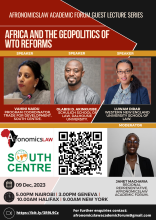Green Deals and Reproductive Justice: A Promise of Just Transition
Research has linked climate change and reproductive rights, as demonstrated by the increased exposure of women to sexual assault as they collect firewood or search for water. Such sexualized violence is prevalent in women-led rural households and highly vulnerable settings. For example, humanitarian contexts, slums, and arid areas have high rates of sexual violence due to water scarcity and poor lighting as women and adolescent girls travel long distances to access water. From an African socio-cultural context, fetching water and firewood are mainly feminine roles. Thus, energy distribution and water scarcity associated with climate change interact with gender dynamics to provide a setting for enacting sexualized violence. Freedom from sexual violence is an integral aspect of reproductive justice, a state where people have bodily autonomy and live in a safe and healthy environment that protects and upholds their reproductive rights and decisions. The question that arises is - can green projects, including the EU Green Deal, address climate change in a manner that addresses the associated sexual and reproductive justice issues in Sub-Saharan Africa?
